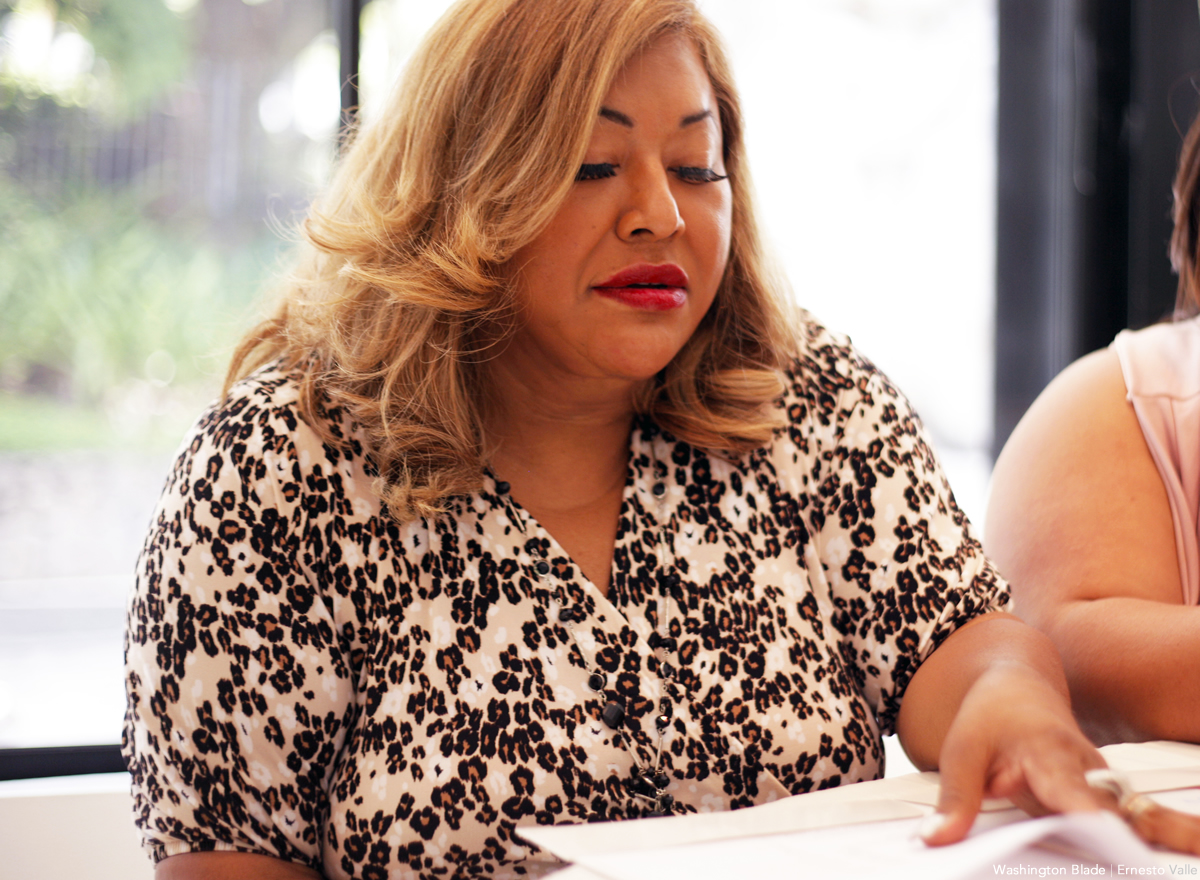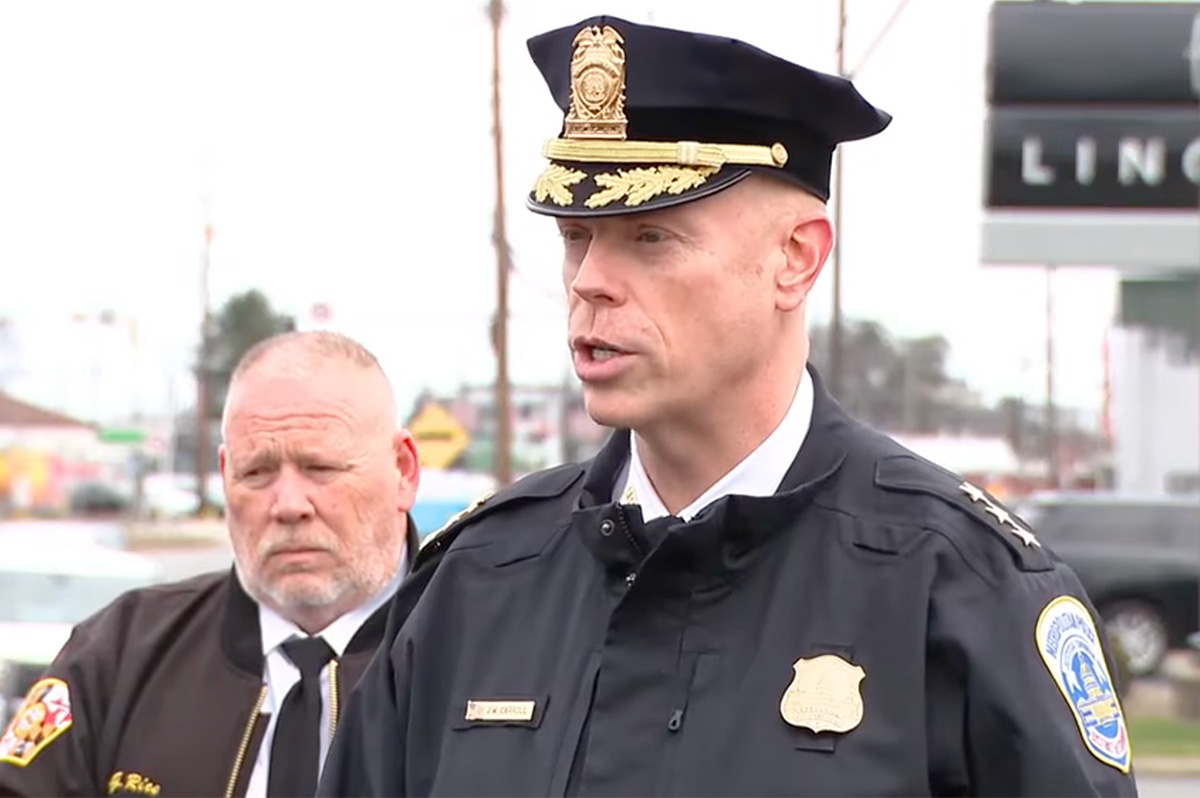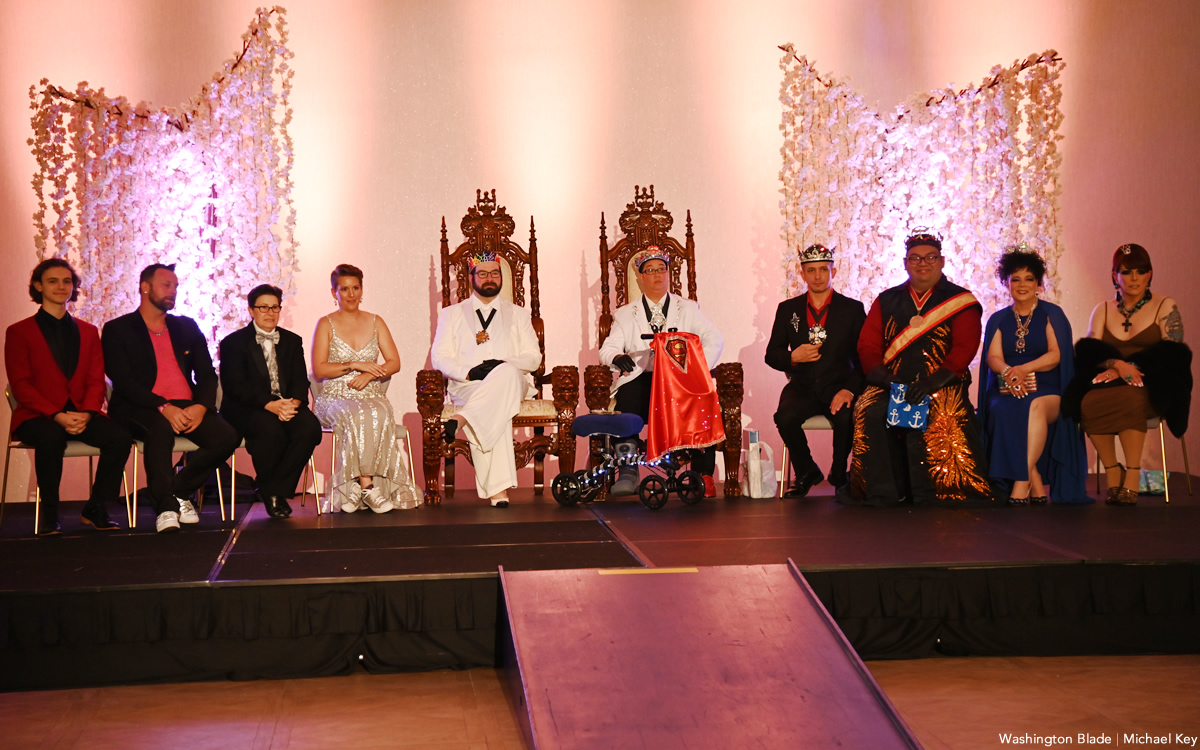District of Columbia
Oral arguments held in Casa Ruby civil suit appeals case
Alston Foundation urges judges to overturn dismissal of ‘negligence’ lawsuit

A three-judge panel of the D.C. Court of Appeals heard oral arguments May 7 on whether a 2023 decision by a D.C. Superior Court judge dismissing a lawsuit against seven of the eight former board members of the now-defunct Casa Ruby LGBTQ community services center should be overturned.
The Wanda Alston Foundation, an LGBTQ youth housing services group that assumed control over the operations of Casa Ruby in August 2022 under a court appointed receivership role, filed its lawsuit against the former board members in December 2022 under the Casa Ruby name.
It accuses them of violating D.C.’s nonprofit corporations’ law by failing to “hold regular meetings/or maintain official records – thereby exercising no oversight or governance over the organization.”
Among other things, the lawsuit said the former board members failed to take steps to prevent Casa Ruby’s founder and former executive director, Ruby Corado, from embezzling large sums of Casa Ruby funds for personal use.
Corado, who was arrested in March 2024 on multiple embezzlement related charges, pleaded guilty in July 2024 to a single charge of wire fraud under a plea agreement with prosecutors. She is scheduled to be sentenced on July 29, 2025.
The lawsuit called on the court to require Corado and the former board members to pay “restitution, compensatory damages, punitive damages, receivership fees and expenses, court costs, attorneys’ fees and expenses and any other relief the court deems necessary and proper.”
In May 2023, at the request of defense attorneys, D.C. Superior Court Judge Danya A. Dayson dismissed the lawsuit against seven of the eight former board members but did not dismiss the case against Corado and one of the board members who allegedly received improper financial benefits from Corado.
Dayson stated in her dismissal decision that it was based on her interpretation of a D.C. law that members of an organization’s board of directors can only be held liable for harming an organization like Casa Ruby if they “intentionally, rather than negligently, inflicted harm on Casa Ruby.”
According to Dayson, the law in question also says board members can be held responsible for harming an organization if a “board member intentionally violated a criminal law or that the board member received some amount of money to which they were not entitled.” She states in her decision that the Alston Foundation lawsuit did not provide sufficient evidence that the seven board members committed those types of violations.
Attorneys for the Alston Foundation disputed Dayson’s interpretation of the law in their initial legal brief filed before the D.C. Court of Appeals in February 2024. Among other things, the brief argued that the Alston Foundation’s Third Interim Report in its role as Casa Ruby receiver provides sufficient evidence that the former board members are legally liable for harming Casa Ruby.
That and follow-up briefs and their oral arguments at the May 7, 2025, hearing state that the appeals court can find that the former board members “were deliberately indifferent’ or ‘willfully blind’ to the alleged wrongful conduct of the nonprofit’s executive director amounting to actual knowledge on their part that inaction would harm the non-profit, ultimately and forcibly leading to its financial inability to continue operating.”
A follow-up brief filed by Alston Foundation attorney Theodore Howard argues that the former board members violated Casa Ruby’s by-laws by conducting only one board meeting in six years.
According to the brief, that “allowed Ms. Corado to maintain complete authority over the organization, including by allowing her to unilaterally appoint new Board members” and allowed her “to maintain sole control over Casa Ruby’s bank and financial accounts, even after Ms. Corado cut off access to those accounts to anyone but herself.”
An opposing brief filed by attorney Marlin Grifith, who is representing former board member Miguel Rivera, states that the decision dismissing the lawsuit correctly interpreted the law pertaining to nonprofit corporations.
“The Superior Court did not err…,” the brief states, adding “there are no facts alleged that support a conclusion of reasonable inference that the individual board members acted with actual knowledge that their inaction would cause harm to the organization.”
Howard, the attorney representing the Alston Foundation in its role as Casa Ruby receiver, said the attorneys on both sides of the case are now waiting for the three-judge appeals court panel to issue their decision.
If they rule in favor of Casa Ruby/Alston Foundation, the case will be sent back to the Superior Court for further proceedings on the lawsuit, Howard said. He said negotiations would likely begin for a possible out-of-court settlement.
If the appeals court rules in favor of the former board members by finding they did not intentionally and knowingly inflict harm to Casa Ruby, “then the case, at least as between Casa Ruby [via the Alston Foundation] and the former board of directors, will be over,” Howard said.
District of Columbia
Kennedy Center renaming triggers backlash
Artists who cancel shows threatened; calls for funding boycott grow

Efforts to rename the Kennedy Center to add President Trump’s name to the D.C. arts institution continue to spark backlash.
A new petition from Qommittee , a national network of drag artists and allies led by survivors of hate crimes, calls on Kennedy Center donors to suspend funding to the center until “artistic independence is restored, and to redirect support to banned or censored artists.”
“While Trump won’t back down, the donors who contribute nearly $100 million annually to the Kennedy Center can afford to take a stand,” the petition reads. “Money talks. When donors fund censorship, they don’t just harm one institution – they tell marginalized communities their stories don’t deserve to be told.”
The petition can be found here.
Meanwhile, a decision by several prominent musicians and jazz performers to cancel their shows at the recently renamed Trump-Kennedy Center in D.C. planned for Christmas Eve and New Year’s Eve has drawn the ire of the Center’s president, Richard Grenell.
Grenell, a gay supporter of President Donald Trump who served as U.S. ambassador to Germany during Trump’s first term as president, was named Kennedy Center president last year by its board of directors that had been appointed by Trump.
Last month the board voted to change the official name of the center from the John F. Kennedy Memorial Center For The Performing Arts to the Donald J. Trump And The John F. Kennedy Memorial Center For The Performing Arts. The revised name has been installed on the outside wall of the center’s building but is not official because any name change would require congressional action.
According to a report by the New York Times, Grenell informed jazz musician Chuck Redd, who cancelled a 2025 Christmas Eve concert that he has hosted at the Kennedy Center for nearly 20 years in response to the name change, that Grenell planned to arrange for the center to file a lawsuit against him for the cancellation.
“Your decision to withdraw at the last moment — explicitly in response to the Center’s recent renaming, which honors President Trump’s extraordinary efforts to save this national treasure — is classic intolerance and very costly to a non-profit arts institution,” the Times quoted Grenell as saying in a letter to Redd.
“This is your official notice that we will seek $1 million in damages from you for this political stunt,” the Times quoted Grenell’s letter as saying.
A spokesperson for the Trump-Kennedy Center did not immediately respond to an inquiry from the Washington Blade asking if the center still planned to file that lawsuit and whether it planned to file suits against some of the other musicians who recently cancelled their performances following the name change.
In a follow-up story published on Dec. 29, the New York Times reported that a prominent jazz ensemble and a New York dance company had canceled performances scheduled to take place on New Year’s Eve at the Kennedy Center.
The Times reported the jazz ensemble called The Cookers did not give a reason for the cancellation in a statement it released, but its drummer, Billy Hart, told the Times the center’s name change “evidently” played a role in the decision to cancel the performance.
Grenell released a statement on Dec. 29 calling these and other performers who cancelled their shows “far left political activists” who he said had been booked by the Kennedy Center’s previous leadership.
“Boycotting the arts to show you support the arts is a form of derangement syndrome,” the Times quoted him as saying in his statement.
District of Columbia
New interim D.C. police chief played lead role in security for WorldPride
Capital Pride says Jeffery Carroll had ‘good working relationship’ with organizers

Jeffery Carroll, who was named by D.C. Mayor Muriel Bowser on Dec. 17 as the city’s Interim Chief of Police, played a lead role in working with local LGBTQ community leaders in addressing public safety issues related to WorldPride 2025, which took place in D.C. last May and June
“We had a good working relationship with him, and he did his job in relation to how best the events would go around safety and security,” said Ryan Bos, executive director of Capital Pride Alliance.
Bos said Carroll has met with Capital Pride officials in past years to address security issues related to the city’s annual Capital Pride parade and festival and has been supportive of those events.
At the time Bowser named him Interim Chief, Carroll had been serving since 2023 as Executive Assistant Chief of Specialized Operations, overseeing the day-to-day operation of four of the department’s bureaus. He first joined the D.C. Metropolitan Police Department in 2002 and advanced to multiple leadership positions across various divisions and bureaus, according to a statement released by the mayor’s office.
“I know Chief Carroll is the right person to build on the momentum of the past two years so that we can continue driving down crime across the city,” Bowser said in a statement released on the day she announced his appointment as Interim Chief.
“He has led through some of our city’s most significant public safety challenges of the past decade, he is familiar with D.C. residents and well respected and trusted by members of the Metropolitan Police Department as well as our federal and regional public safety partners,” Bowser said.
“We have the best police department in the nation, and I am confident that Chief Carroll will meet this moment for the department and the city,” Bowser added.
But Bowser has so far declined to say if she plans to nominate Carroll to become the permanent police chief, which requires the approval of the D.C. City Council. Bowser, who announced she is not running for re-election, will remain in office as mayor until January 2027.
Carroll is replacing outgoing Chief Pamela Smith, who announced she was resigning after two years of service as chief to spend more time with her family. She has been credited with overseeing the department at a time when violent crime and homicides declined to an eight-year low.
She has also expressed support for the LGBTQ community and joined LGBTQ officers in marching in the WorldPride parade last year.
But Smith has also come under criticism by members of Congress, who have accused the department of manipulating crime data allegedly showing lower reported crime numbers than actually occurred. The allegations came from the Republican-controlled U.S. House Oversight Committee and the U.S. Justice Department
Bowser has questioned the accuracy of the allegations and said she has asked the city’s Inspector General to look into the allegations.
Meanwhile, a spokesperson for the D.C. police Office of Public Affairs did not immediately respond to a question from the Washington Blade about the status of the department’s LGBT Liaison Unit. Sources familiar with the department have said a decline in the number of officers currently working at the department, said to be at a 50-year low, has resulted in a decline in the number of officers assigned to all of the liaison units, including the LGBT unit.
Among other things, the LGBT Liaison Unit has played a role in helping to investigate hate crimes targeting the LGBTQ community. As of early Wednesday an MPD spokesperson did not respond to a question by the Blade asking how many officers are currently assigned to the LGBT Liaison Unit.
District of Columbia
Imperial Court of Washington drag group has ‘dissolved’
Board president cites declining support since pandemic

The Imperial Court of Washington, a D.C.-based organization of drag performers that has raised at least $250,000 or more for local LGBTQ and non-LGBTQ charitable groups since its founding in 2010, announced on Jan. 5 that it has ended its operations by dissolving its corporate status.
In a Jan. 5 statement posted on Facebook, Robert Amos, president of the group’s board of directors, said the board voted that day to formally dissolve the organization in accordance with its bylaws.
“This decision was made after careful consideration and was based on several factors, including ongoing challenges in adhering to the bylaws, maintaining compliance with 501(c)(3) requirements, continued lack of member interest and attendance, and a lack of community involvement and support as well,” Amos said in his statement.
He told the Washington Blade in a Jan. 6 telephone interview that the group was no longer in compliance with its bylaws, which require at least six board members, when the number of board members declined to just four. He noted that the lack of compliance with its bylaws also violated the requirements of its IRS status as a nonprofit, tax-exempt 501(c) (3) organization.
According to Amos, the inability to recruit additional board members came at a time when the organization was continuing to encounter a sharp drop in support from the community since the start of the COVID pandemic around 2020 and 2021.
Amos and longtime Imperial Court of Washington member and organizer Richard Legg, who uses the drag name Destiny B. Childs, said in the years since its founding, the group’s drag show fundraising events have often been attended by 150 or more people. They said the events have been held in LGBTQ bars, including Freddie’s Beach Bar in Arlington, as well as in other venues such as theaters and ballrooms.
Among the organizations receiving financial support from Imperial Court of Washington have been SMYAL, PFLAG, Whitman-Walker Health’s Walk to End HIV, Capital Pride Alliance, the DC LGBT Community Center, and the LGBTQ Fallen Heroes Fund. Other groups receiving support included Pets with Disabilities, the Epilepsy Foundation of Washington, and Grandma’s House.
The Imperial Court of Washington’s website, which was still online as of Jan. 6, says the D.C. group has been a proud member of the International Court System, which was founded in San Francisco in 1965 as a drag performance organization that evolved into a charitable fundraising operation with dozens of affiliated “Imperial Court” groups like the one in D.C.
Amos, who uses the drag name Veronica Blake, said he has heard that Imperial Court groups in other cities including Richmond and New York City, have experienced similar drops in support and attendance in the past year or two. He said the D.C. group’s events in the latter part of 2025 attracted 12 or fewer people, a development that has prevented it from sustaining its operations financially.
He said the membership, which helped support it financially through membership dues, has declined in recent years from close to 100 to its current membership of 21.
“There’s a lot of good we have done for the groups we supported, for the charities, and the gay community here,” Amos said. “It is just sad that we’ve had to do this, mainly because of the lack of interest and everything going on in the world and the national scene.”
-

 Sponsored5 days ago
Sponsored5 days agoSafer Ways to Pay for Online Performances and Queer Events
-

 District of Columbia4 days ago
District of Columbia4 days agoTwo pioneering gay journalists to speak at Thursday event
-

 Colombia3 days ago
Colombia3 days agoBlade travels to Colombia after U.S. forces seize Maduro in Venezuela
-

 a&e features4 days ago
a&e features4 days agoQueer highlights of the 2026 Critics Choice Awards: Aunt Gladys, that ‘Heated Rivalry’ shoutout and more




















